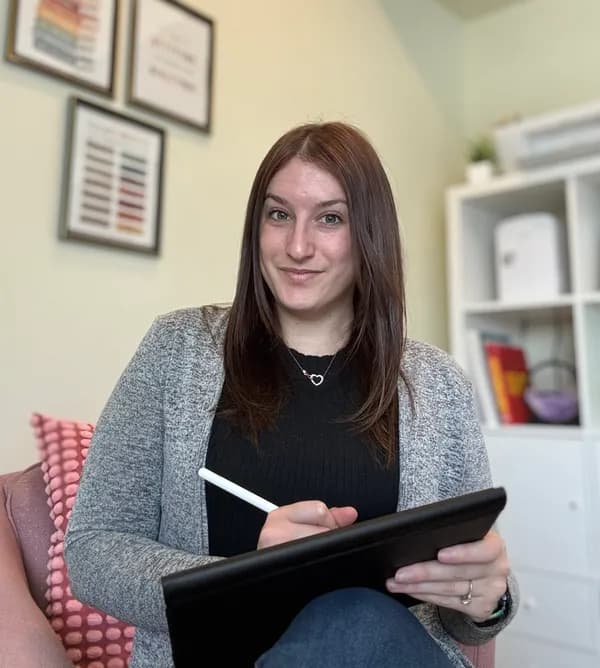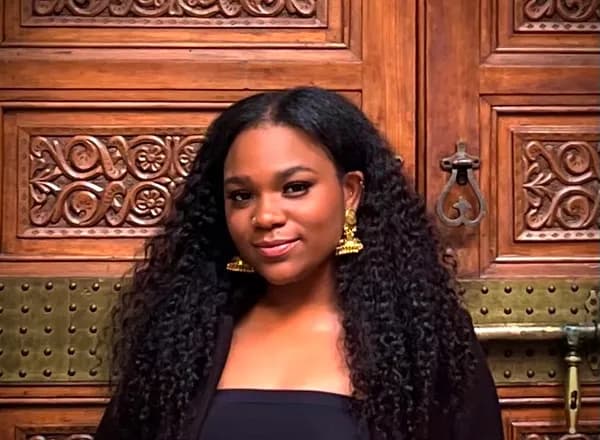Therapy for child loss and pregnancy loss

Losing a pregnancy or a child shatters your world in a way few people understand. Others may minimize your pain or expect you to move on, but you are left carrying a grief that feels endless and isolating. This loss is not something to get over. It is love with nowhere to go and a future that vanished. Therapy cannot erase the heartbreak, but it gives you a place to grieve openly, honour your child, and slowly learn how to live with this pain instead of feeling swallowed by it.
The unique nature of this grief
Why child loss is different
Losing a child or a pregnancy breaks the natural order. You lose not only the person but every future you imagined for them, and the version of yourself you were becoming as their parent. This grief is overwhelming because it is one of the most traumatic losses a person can experience. The impact is deep, lasting, and life changing.
Pregnancy loss: disenfranchised grief
Pregnancy loss is often minimized by others, but the bond you felt was real. Whether the loss was early, later in pregnancy, or involved medical termination, you are grieving your child and the life you hoped for. Stillbirth adds the pain of labour without the joy that should have followed. These losses deserve recognition, compassion, and space to be mourned.
How common these losses are
Pregnancy loss is far more common than most people realize. Miscarriage affects a significant number of pregnancies, and stillbirth touches many families in Canada each year. Infant and child deaths, though less common, leave a profound impact on thousands of families. Many people grieve in silence, which creates even more isolation. You are not alone in this experience.
Understanding pregnancy and child loss
Sources:PHAC: Perinatal Loss in Canada infographic (2020)andStatistics Canada: Stillbirths, 2022.
Different types of loss, similar pain
Every loss is different, yet all carry overwhelming grief. Early miscarriage, later miscarriage, ectopic pregnancy, molar pregnancy, and stillbirth are all real losses, and each one leaves its own mark. Infant death, whether from SIDS or medical complications, brings another kind of heartbreak, and the death of a toddler, child, teenager, or adult child carries grief shaped by the life and future you shared with them. There is no ranking of losses. Your child mattered, and your pain is real.
The many dimensions of loss
The physical and emotional trauma
Pregnancy loss affects both your body and your heart. Your body was preparing for a baby who is not coming home, and the physical changes and procedures can be painful and confusing. Hormones shift while you are grieving, and reminders like milk coming in or keepsakes from stillbirth or infant loss can feel precious and devastating at the same time. These layers of trauma are real even when others do not fully understand them.
Relationship strain and isolation
Partners often grieve in different ways, which can create distance when you need closeness most. Friends and family may stay silent or say the wrong thing, leaving you without support. You may avoid people, social events, or anything related to babies. This deepens the sense of isolation and makes the grief feel even heavier.
Shattered assumptions and identity
You expected to bring your child home and watch them grow, and that future disappeared in an instant. Your identity as a parent or expectant parent can feel uncertain. You may not know how to speak about your child or how to move through a world that now feels unsafe and unpredictable. Rebuilding a sense of self takes time, gentleness, and support.
What therapy offers after loss
Why specialized grief support matters
Not all therapists understand the specific nature of pregnancy and child loss. You need someone who won't minimize your loss, rush your grief, or expect you to "move on." A therapist specializing in this area understands that there's no timeline for grief, that you'll always be the parent of your child, and that healing doesn't mean forgetting. They provide space to talk about your child, express unbearable feelings, navigate relationship challenges, and slowly learn to carry your grief while still living. They understand both complicated grief and traumatic grief, and they won't pathologize your pain.
Approaches that help with this grief
Continuing bonds perspective
This approach recognizes that you do not need to let go of your child. Therapy helps you honour your bond through rituals, memories, and meaningful ways of keeping them present in your life. The goal is to carry the connection differently, not lose it.
Trauma-focused therapy
Many pregnancy and child losses are traumatic. Therapies such as EMDR or exposure-based approaches help reduce the intense, intrusive aspects of trauma so you can grieve without being overwhelmed. This work is paced carefully to support safety and stability.
Meaning-making and narrative therapy
These approaches help you integrate the loss into your life story. They do not try to justify what happened but support you in exploring identity, purpose, and the meaning you choose to create as you continue living with grief.
Complicated grief treatment
When grief remains intense and immobilizing for a long time, specialized treatment can help. This structured therapy reduces avoidance, supports emotional processing, and helps you re-engage with life while still honouring your child.
Couples therapy for bereaved parents
Partners often grieve in different ways. Couples therapy helps you understand each other, communicate needs, and stay connected through the loss. It supports you in rebuilding your relationship or parting with compassion if that becomes the healthiest path.
The grief journey in therapy
Bearing witness to your loss
Early therapy gives you a place to speak about your child and your grief without pressure to move on. You can tell your story, share memories, or sit in silence. Your therapist holds space for the depth of your pain and helps you get through the early days one moment at a time.
Processing trauma and navigating life
As you feel ready, therapy helps you work through traumatic parts of the loss and cope with triggers like due dates, anniversaries, or unexpected reminders. You learn how to balance grief with daily life, communicate your needs, and set boundaries with people who may not understand. This phase takes as long as it needs.
Living with loss
Over time, therapy helps you carry your grief while still engaging in life. The pain softens, but the love remains. You learn to hold both grief and joy, honour your child, and build a future that includes their absence. Some people finish therapy, while others return when needed. Either path is completely valid.
Find a therapist for pregnancy and child loss
Choosing the right therapist matters. Each province in Canada has its own regulations, which is why working with a recognized professional can make a real difference in your care. Stellocare takes the uncertainty out of the process by listing only verified therapists you can trust.
The right therapist for you
No therapists found with these specialties in Ontario.
Try selecting a different province.Resources and support
Canadian support for bereaved parents
Bereaved Families of Ontario
Peer support groups, educational resources, and services for families grieving the death of a child of any age. Understanding that child loss grief is unique and ongoing. Access resources.
Canadian Premature Babies Foundation
Support for families who've lost premature babies or are navigating NICU experiences. Bereavement support alongside medical information. Learn more.
The Compassionate Friends
International organization with Canadian chapters supporting families after the death of a child of any age. Meetings, online communities, and resources specifically for bereaved parents and siblings. Connect with others.
Pregnancy and Infant Loss Awareness
October 15 is Pregnancy and Infant Loss Remembrance Day. Many communities hold events, wave of light ceremonies, and gatherings. Connecting with others who understand can reduce isolation and validate your grief.
Books for grieving parents
Empty Cradle, Broken Heart by Deborah Davis addresses pregnancy and infant loss. The Bereaved Parent by Harriet Schiff speaks to all child loss. When Breath Becomes Air by Paul Kalanithi, though not about child loss specifically, speaks beautifully about mortality and meaning.
Ways to honour your grief and your child
Creating connection and meaning
- Honour important dates: birthdays, due dates, death anniversaries. Do what feels right—light a candle, visit a special place, gather with loved ones, or spend quiet time alone. There's no wrong way to mark these days.
- Create tangible remembrances: plant a tree or garden, make a memory box, create artwork, write letters to your child, or establish a memorial. Physical expressions of love and grief can be deeply comforting.
- Say their name: talk about your child. Share memories, include them in family conversations, and don't let others' discomfort silence you. Your child existed and mattered.
Navigating relationships and support
- Be clear about what helps: tell people specifically what you need. "Please don't say everything happens for a reason" or "I need you to just listen without trying to fix this" gives others guidance when they want to help but don't know how.
- Limit exposure to harmful people: you're not obligated to spend time with people who minimize your loss or make insensitive comments, even family. Protect yourself during this vulnerable time.
- Find others who understand: support groups, online communities, or individual connections with other bereaved parents provide understanding that well-meaning others simply can't offer. This shared experience reduces isolation.
Surviving day to day
- Lower all expectations: if you're showered and fed today, that's enough. Grief is exhausting. Normal life can wait. Give yourself permission to function at minimum capacity.
- Feel what you feel: anger, numbness, relief, guilt, despair, moments of laughter—all are normal parts of grief. There's no right way to grieve. Don't judge your feelings or try to force them into acceptable forms.
- Take grief in small doses: you don't have to feel everything all at once. It's okay to distract yourself sometimes, to laugh at something, to have moments when you're not actively grieving. This isn't betrayal; it's survival.
Questions about grief after losing a child
How long will this hurt?
There is no set timeline for grief like this. The intense pain usually softens over months or years, but you will always miss your child. Many parents say the grief stays the same size while they grow around it. Waves of sadness can return at milestones or random moments, and this is a normal part of healing.
Am I betraying my child if I have another baby or feel happy?
No. Feeling joy or loving another child does not lessen your love for the child you lost. Each child is unique and irreplaceable. Allowing yourself to keep living is not a betrayal. It is a sign that your love and grief can exist together.
What do I say when people ask how many children I have?
There is no right or wrong answer. You can include your child when it feels safe or choose a simpler response when you do not want to open painful conversations. You can decide based on the moment and your emotional capacity. Both choices honour your child.
My partner grieves so differently. Does this mean we won't make it?
Different grieving styles are common and do not mean the relationship is doomed. One may want to talk while the other stays quiet. One may seek reminders while the other avoids them. Couples therapy can help you understand each other and stay connected through the loss.
When should I seek professional help?
Support can help at any stage. Reach out if you feel overwhelmed, unable to function, isolated, or are using substances to cope. Seek immediate help if you have thoughts of suicide. You do not need to reach a certain level of pain to deserve care. This loss is immense, and support is appropriate for anyone going through it.
Related concerns
References
- American Pregnancy Association. Miscarriage statistics and information. Retrieved from https://www.pregnancybirthbaby.org.au/miscarriage
- Shear, M. K., Reynolds, C. F., Simon, N. M., Zisook, S., Wang, Y., Mauro, C., ... & Skritskaya, N. (2016). Optimizing treatment of complicated grief: A randomized clinical trial. JAMA Psychiatry, 73(7), 685-694. Retrieved from https://pubmed.ncbi.nlm.nih.gov/27276373/
- Bereaved Families of Ontario. Support services. Retrieved from https://www.bereavedfamilies.net/
- Canadian Premature Babies Foundation. Bereavement support. Retrieved from https://cpbf-fbpc.org/
- The Compassionate Friends. Supporting family after a child dies. Retrieved from https://www.compassionatefriends.org/
- Davis, D. L. (2021). Empty Cradle, Broken Heart: Surviving the Death of Your Baby (3rd ed.). Fulcrum Publishing.
- Cacciatore, J. (2017). Bearing the Unbearable: Love, Loss, and the Heartbreaking Path of Grief. Wisdom Publications.
About Stellocare
Stellocare is a Canadian platform where you can find the best fit therapist for you. Search the right thperaists now by asking our AI, browsing our list, or finding our social workers for personal referral.

Stefania Bonanno
Registered Social Worker (ON)

Morgan Fancy
Registered Psychotherapist (ON)

Abby Molloy
Registered Psychotherapist (Qualifying) (ON)

Renée LaJoie
Counselling Therapist (AB)

Yamila Luner
Canadian Certified Counsellor

Diana Freitas
Registered Social Worker (ON)

Chanté Merriman
Registered Psychotherapist (Qualifying) (ON)

Jessica Bagiamis
Registered Psychotherapist (ON)

Peter Wong
Registered Psychotherapist (ON)

Shayesteh Zarieh
Registered Psychotherapist (Qualifying) (ON)

Caitlin Pelkey
Registered Psychotherapist (Qualifying) (ON)

Justin Appler
Registered Psychotherapist (Qualifying) (ON)

Rae Jardine
Registered Social Service Worker (ON)

Amelia Henriquez
Registered Psychotherapist (Qualifying) (ON)

Katherine Collins
Registered Psychotherapist (Qualifying) (ON)

Natalie Bender
Registered Psychotherapist (Qualifying) (ON)

Hardeep Ajmani
Registered Social Worker (ON)

Naomi Roccamo
Canadian Certified Counsellor

Haifa Behbahani
Registered Psychotherapist (Qualifying) (ON)

Kimia Taghavi
Registered Psychotherapist (Qualifying) (ON)

Stefania Bonanno
Registered Social Worker (ON)

Morgan Fancy
Registered Psychotherapist (ON)

Abby Molloy
Registered Psychotherapist (Qualifying) (ON)

Renée LaJoie
Counselling Therapist (AB)

Yamila Luner
Canadian Certified Counsellor

Diana Freitas
Registered Social Worker (ON)

Chanté Merriman
Registered Psychotherapist (Qualifying) (ON)

Jessica Bagiamis
Registered Psychotherapist (ON)

Peter Wong
Registered Psychotherapist (ON)

Shayesteh Zarieh
Registered Psychotherapist (Qualifying) (ON)

Caitlin Pelkey
Registered Psychotherapist (Qualifying) (ON)

Justin Appler
Registered Psychotherapist (Qualifying) (ON)

Rae Jardine
Registered Social Service Worker (ON)

Amelia Henriquez
Registered Psychotherapist (Qualifying) (ON)

Katherine Collins
Registered Psychotherapist (Qualifying) (ON)

Natalie Bender
Registered Psychotherapist (Qualifying) (ON)

Hardeep Ajmani
Registered Social Worker (ON)

Naomi Roccamo
Canadian Certified Counsellor

Haifa Behbahani
Registered Psychotherapist (Qualifying) (ON)

Kimia Taghavi
Registered Psychotherapist (Qualifying) (ON)

